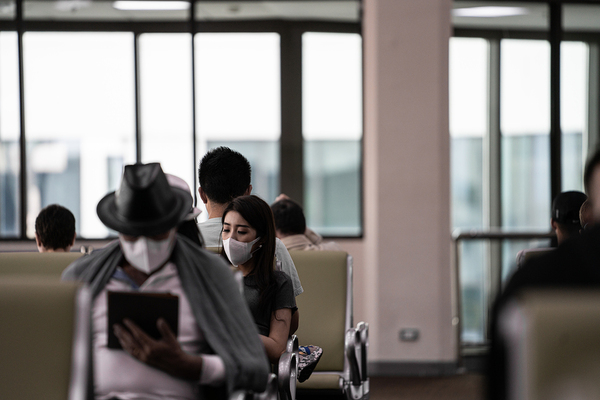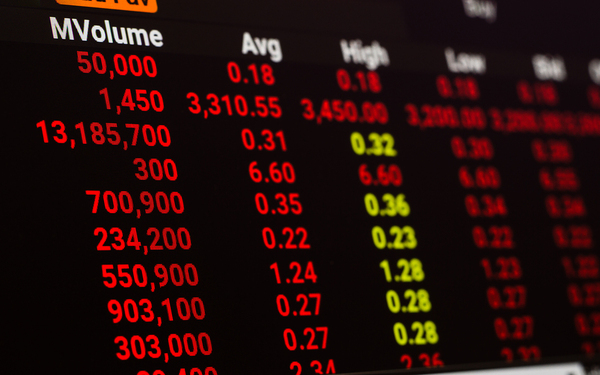View Sale Announcement Detail


Archived news
EXCERPT: The ongoing spread of the coronavirus has already dampened worldwide growth, and it could get worse. Given the uncertainty that lies ahead, now's the time to recession-proof your loan portfolio.
 The coronavirus is infecting scores of people across the globe while simultaneously ravaging the global economy.
The coronavirus is infecting scores of people across the globe while simultaneously ravaging the global economy.
The coronavirus has everyone on edge as it continues to spread and become pandemics in countries outside of China, including Iran, Italy, and South Korea. But in addition to the health implications of the virus, it is also wreaking havoc on the global economy.
This most recent coronavirus appears to be more damaging to the global economy than its predecessor, SARS, which also started in China and spread across the world, killing nearly 800 people and infecting just over 8,000. But this latest virus has already infected over 80,000 people around the world, as of this writing, and claimed over 2,700 lives. While the rate of death is lower this time around compared to the SARS outbreak from 17 years ago, the rapid spread and the sheer number of infections is perhaps even more worrisome.
According to Oxford Economics, COVID-19, as the virus has been officially dubbed, is anticipated to cost the worldwide economy over $1 trillion if it worsens to become a global pandemic and spreads outside Asia. And with recent news about outbreaks and lockdowns in Italy, Iran, and South Korea, it seems as though such forecasts are on par to come to fruition.
Coronavirus a Threat to the Global Economy
The coronavirus continues to threaten global supply chains as manufacturers and retailers across the world who are heavily dependent on Chinese suppliers see worsening shortages.
Many parts of the globe depend on consumption and production from China. A number of companies rely on the interconnection that they have with China. But with more and more factories shutting down amidst fears of contamination, the global supply chain is seeing the ripple effects. Such factory closures in China have trickled over to nearby nations as businesses struggle to find alternative sources from Asia.
Over recent years, China has become a vital part of global business and is a hot spot for product manufacturing. China's wealthy demographic - of which there are hundreds of millions - spends incredible sums of money on tourism and luxury products. Compared to 2003, when China's economy accounted for approximately 4 percent of global GDP, it's now quadrupled to make up 16 percent of global output.
 Stock markets have seen plenty of red over recent weeks as the coronavirus continues to spark fears across the globe.
Stock markets have seen plenty of red over recent weeks as the coronavirus continues to spark fears across the globe.
Stock Markets Ravaged by Continued Spread of the Virus
This past Tuesday, February 25, the Dow Jones industrial average saw its worst two-day slump in about four years, though US shares moved higher by midday the day after. In European and Asian markets, however, financial concerns are evident as the virus continues to spread with hardly any indication that it would stop in the short term.
Banks At Risk As a Result of the Coronavirus
The way that businesses, consumers, and governments respond to the coronavirus outbreak - particularly as it spreads to countries outside of China - is what matters most. Traveling has significantly slowed, if not halted altogether in some parts of the world. People are staying home out of fear of contracting the virus and are therefore less likely to spend, including taking out loans.
Hong Kong's banks are facing weaker asset quality and slowed loan growth. Asian lenders, including HSBC, are experiencing declines in demand for mortgages, corporate loans, and credit card usage. Some banks even began the process of stress testing certain parts of their business in China and Hong Kong out of fears of a growing pandemic of the virus.
The ripple effect that the coronavirus has had and continues to have may likely be the main driver of the next recession. It's impossible to project what will come in the following days, weeks, and even months. But what is certain, however, is that banks and financial institutions are highly encouraged to take precautions immediately to recession-proof their loan portfolios should the economy take a nosedive in the near future.
At Garnet Capital, we can assist you in selling off weak assets and replacing them with stronger ones that will help strengthen your loan portfolios, so they may be better able to withstand any financial turmoil that may come.
Register for our online portfolio auction system today.

